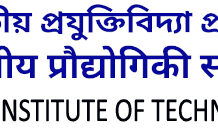Japan is experiencing record levels of streptococcal toxic shock syndrome (STSS), a dangerous and often fatal bacterial infection, with experts yet to identify the cause of the surge. By June 2, the Health Ministry reported 977 cases of STSS, surpassing last year’s record of 941 preliminary infections since statistics began in 1999. Between January and March, 77 deaths were attributed to the infection.
STSS, which has a mortality rate of up to 30%, is a rare but severe bacterial infection that rapidly progresses from initial symptoms of fever, muscle pain, and vomiting to life-threatening conditions such as low blood pressure, swelling, and multiple organ failure. The US Center for Disease Control and Prevention (CDC) notes that even with treatment, three out of ten people with STSS may die.
The majority of STSS cases are caused by group A streptococcus (GAS) bacteria, known for causing fever and throat infections in children. However, in rare cases, strep A can invade deep tissues and the bloodstream, leading to severe illnesses like toxic shock syndrome and necrotizing fasciitis, the latter of which can result in limb loss.
During the COVID-19 pandemic, measures like masking and social distancing reduced the spread of invasive group A strep infections. However, the relaxation of these measures has led to a resurgence. In December 2022, five European countries reported an increase in invasive group A streptococcus (iGAS) to the World Health Organization, particularly affecting children under 10. The CDC also noted an apparent rise in cases at the time.
Japanese authorities warned of a surge in STSS cases in March. The National Institute of Infectious Diseases indicated that cases have increased since July 2023, particularly among those under 50 years of age.
As reported by CNN, the exact reason for the rise in STSS cases in Japan remains uncertain. The CDC states that older individuals with open wounds, including recent surgical patients, are at higher risk, but the source of infection in nearly half of STSS cases is unknown.
Professor Ken Kikuchi of Tokyo Women’s Medical University suggested to NHK that weakened immune systems post-COVID could be a factor. “We can boost immunity if we are constantly exposed to bacteria. But that mechanism was absent during the coronavirus pandemic,” Kikuchi explained. “So, more people are now susceptible to infection, and that may be one reason for the sharp rise in cases.”
























